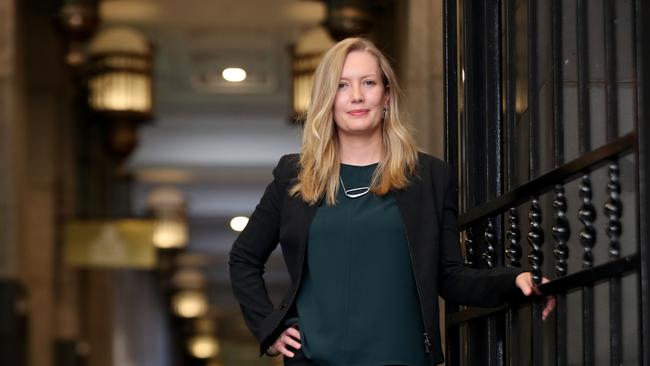COVID-19 debt hits young adults the hardest as income dries up
A “debt tsunami” threatens to engulf young Australians as COVID-19 hits their finances the hardest and forces them into dangerous borrowing arrangements. Here’s how to take control.
Costs
Don't miss out on the headlines from Costs. Followed categories will be added to My News.
A “debt tsunami” threatens to engulf young Australians as COVID-19 hits their finances the hardest and forces them into dangerous borrowing arrangements.
A study by the Consumer Policy Research Centre has found the nation’s debt worries have intensified amid a spike in young adults missing bill payments and signing up for expensive payday loans.
It found Australians aged 18 to 34 are twice as likely as the overall population to have borrowed money from family or friends or accessed assistance from an emergency relief agency, and three times more likely to borrow from a payday lender.

Consumer Policy Research Centre CEO Lauren Solomon said “the financial reality of the pandemic is hitting home” as 10 per cent of young adults missed a rental or energy bill payment last month and 7-8 per cent missed a telecommunications or credit payment.
These proportions are twice as high as Australians overall and have more than doubled since May.
“People aren’t just having problems paying one bill – it’s with all bills,” Ms Solomon said.
The research, involving more than 1400 people, found:
• One quarter of Australians are “very concerned” about their financial wellbeing, up from 19 per cent three months ago.
• Half of renters are worried about their ability to pay their landlords.
• Almost one in five consumers had a “negative experience” with an essential service provider in July.
It says young people are facing a debt tsunami that is forcing them to borrow from their future.
“We are seeing them trying to make ends meet with high risk, high-cost debt products,” Ms Solomon said.

Payday loans can have interest rates of up to 48 per cent. “There’s about 300,000 young people right now taking out payday loans – they are very much targeted by these predatory products and service providers,” Ms Solomon said.
Sort My Money founder David Rankin said the “exorbitant interest rates and hidden fees” of payday loans meant they could multiply people’s debt.
“When people are desperate, they cling to anything they can get,” he said. “Credit is never a solution for credit problems.”
Mr Rankin said some debt problems had been hidden earlier in the pandemic because more than 2.5 million people had withdrawn superannuation through the government’s early release scheme, but this cash was running out.
“The most vulnerable people in our society are the younger people – those with more tenuous jobs and those whose super has been exhausted,” he said.
Online spending during the pandemic had been “the big temptation for a lot of people” and was causing their debt to spiral, Mr Rankin said.
GET OUT OF DEBT
• Try to repay the highest-interest debt first as it’s costing the most.
• Don’t ignore it – talk to lenders about their hardship provisions.
• Consider extending loan terms and switching to interest-only options to lower repayments.
• Go through bank and credit card statements to spot spending that might be causing problems.
• If in trouble, speak to a free financial counsellor by calling 1800 007 007.
